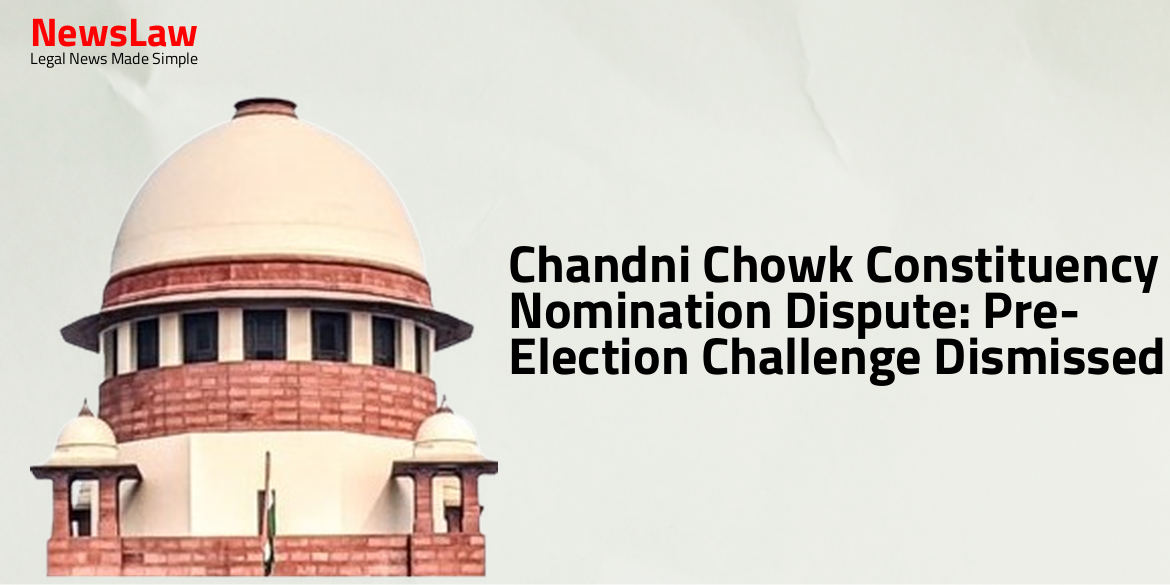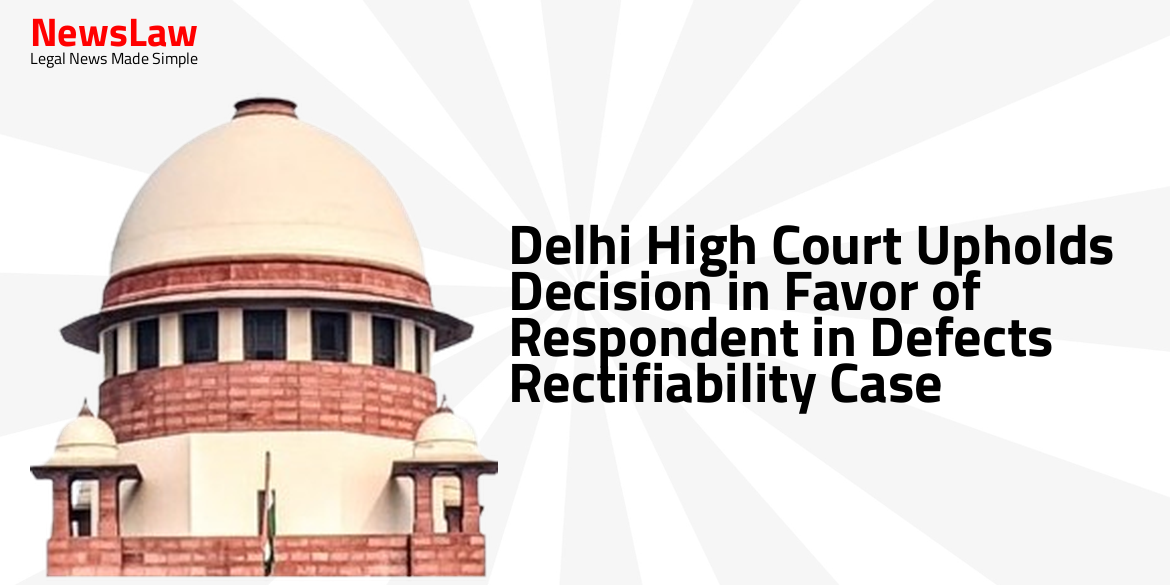In a recent legal case, the court delved into the boundaries of supervisory jurisdiction, emphasizing the importance of serious dereliction of duty or violation of fundamental legal principles for intervention. The court highlighted the necessity to prevent miscarriage of justice and not act as an appellate court. This case sheds light on the nuances of court’s legal analysis in exercising supervisory jurisdiction under Article 227 of the Constitution of India.
Facts
- Shailendra Garg, the sole proprietor of the appellant, was arrested by the Rajasthan Police on 29 September 2015 in an unrelated case.
- He was sent to judicial custody on 6 October 2015 and detained in Central Jail, Jaipur.
- Shailendra Garg was released on bail on 6 May 2017.
- The appellant filed a civil suit for recovery of Rs.81,24,786.23 against the respondent before the Delhi High Court.
- The appellant’s detention impacted his ability to effectively contest and participate in the civil suit.
- Multiple applications were filed for the issuance of production warrants for Shailendra Garg’s appearance in court.
- The court considered the challenges faced by Shailendra Garg due to his detention in reaching out to his counsel and following the proceedings of the suit.
- Defendant’s counsel should have moved an application for production warrants, case adjourned for 31.05.2016 with further costs
- On 31.05.2016, production warrants issued in the name of SSP for defendant’s appearance
- Defendant was sent to jail on 06.10.2015, given further time to file list of witnesses on 14.03.2016 subject to costs
- Shailendra Garg from Central Jail, Jaipur, was ordered to appear via production warrant on 22.04.2016
- Suit was directed to be transferred to High Court on 8 June 2016, then renumbered and listed on 10 August 2016
- Shailendra Garg released on bail on 6 May 2017, filed application under Order IX Rule 13 on 16 May 2017
- Case adjourned for 08.06.2016, final arguments heard on 7 November 2016
- Additional District Judge imposed cost of Rs.5,000/- for failure to file production warrant application on 22 April 2016
- Suit was transferred to District Judge, Tis Hazari, Delhi, on plea of pecuniary jurisdiction
- Ex-parte judgment passed on 8 November 2016 decreeing suit in favor of respondent
Also Read: Analysis of Bail Conditions in Criminal Appeal No. INSC 48/2024
Issue
- The limited issue for consideration is whether the High Court was justified in setting aside the order allowing the application under Order IX Rule 13 of the Code of Civil Procedure, 1908.
- The specific point to be determined is if the High Court was correct in law and on facts to exercise powers under Article 227 of the Constitution of India in this case.
Also Read: Conviction Upheld for Murder and Concealment of Body
Analysis
- The exercise of power under Article 227 is limited to cases of serious dereliction of duty or flagrant violation of fundamental principles of law or justice.
- The High Court should not substitute its judgment for that of the subordinate court unless there is a serious error apparent on the face of the record.
- Discretionary relief under Article 227 should be granted to prevent a miscarriage of justice.
- The High Court should not act as an appellate court when exercising supervisory jurisdiction under Article 227.
- The High Court should not interfere if the trial court’s decision is justified or supported by evidence.
- Supervisory jurisdiction is meant to correct grave dereliction of duty or violation of fundamental principles of law or justice.
- The High Court can set aside findings of facts if there is no evidence to support them or if the findings are clearly unreasonable.
- Certified copy of judgement being obtained by appellant’s counsel does not negate the fact that the appellant was in jail and unable to attend proceedings.
- High Court’s interference in the trial court’s decision to grant relief was not justified under Article 227.
- The trial court’s decision to grant relief to the appellant was supported by the circumstances of the case.
- The scope and ambit of exercise of power and jurisdiction by a High Court under Article 227 of the Constitution of India have been examined and explained in several decisions of the court.
- Respondent’s interest needs to be protected due to appellant’s alleged attempt to dissipate or transfer assets.
- Appellant is directed to file details of all movable and immovable assets existing on the date of filing the suit within three weeks.
Also Read: 1991 Decree Invalid: No Determination of Rights in Property Dispute
Decision
- The appeal is allowed with no order as to costs.
- The impugned order dated 4 July 2019 is set aside.
- The order dated 24 July 2018 is restored, allowing the application under Order IX Rule 13 to set aside the ex-parte decree and judgment dated 8 November 2016.
- Issuing a production warrant depends on the facts of each case and the party’s ability to adduce evidence if a witness is in custody.
- The objective is to provide a fair opportunity for the party to establish their case.
- A production warrant was issued for the appellant, a sole proprietor, to record his testimony in court.
- Parties or their representatives are to appear before the trial court on 2 February 2022 for the filing of witness lists and affidavits, followed by three consecutive dates for leading third party evidence and cross-examination of witnesses.
Case Title: M/S GARMENT CRAFT Vs. PRAKASH CHAND GOEL (2022 INSC 37)
Case Number: C.A. No.-000314-000314 / 2022



